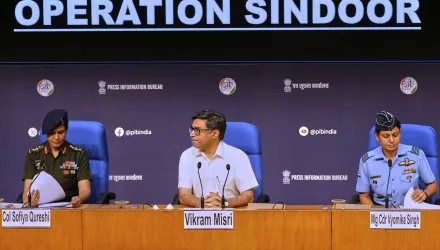Follies and Fiascoes: Why Does U.S. Foreign Policy Keep Failing?
The end of the Cold War left the United States in a remarkable position: It was far and away the world's most powerful country, and it was on good terms with most of the world's major powers. Despite these advantages, its foreign policy record since then is mostly one of disappointments and sometimes costly failures. These recurring follies are due in part to America's structural position in the international system, but they also reveal some recurring weaknesses in America's foreign policy establishment and its overall approach to foreign affairs.
Please join us! Coffee and tea provided. Everyone is welcome, but admittance will be on a first come–first served basis.



